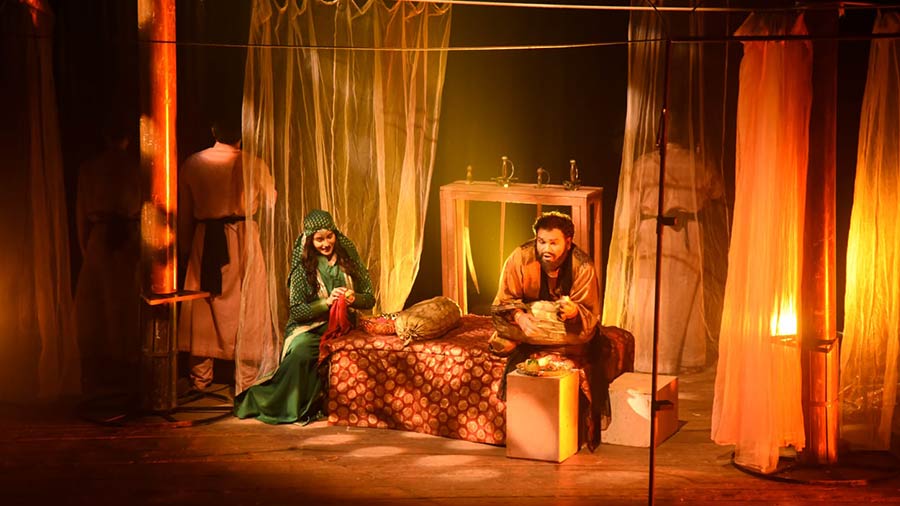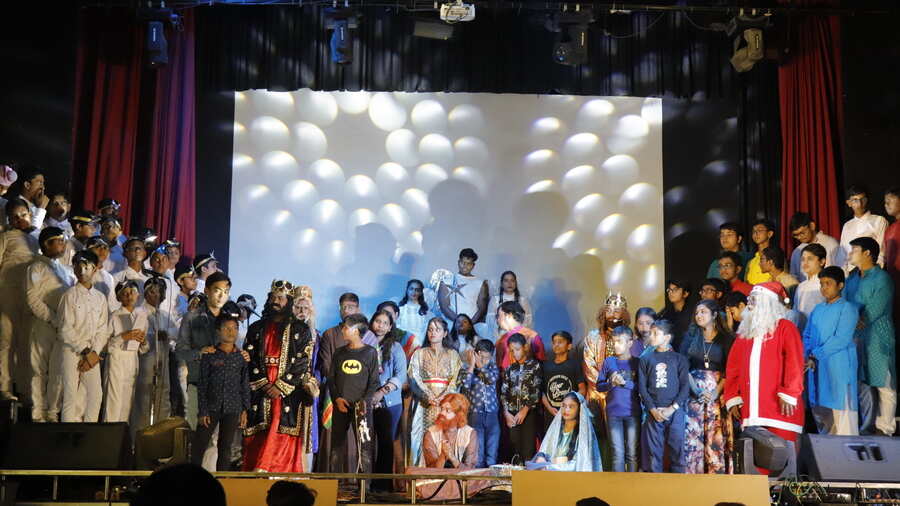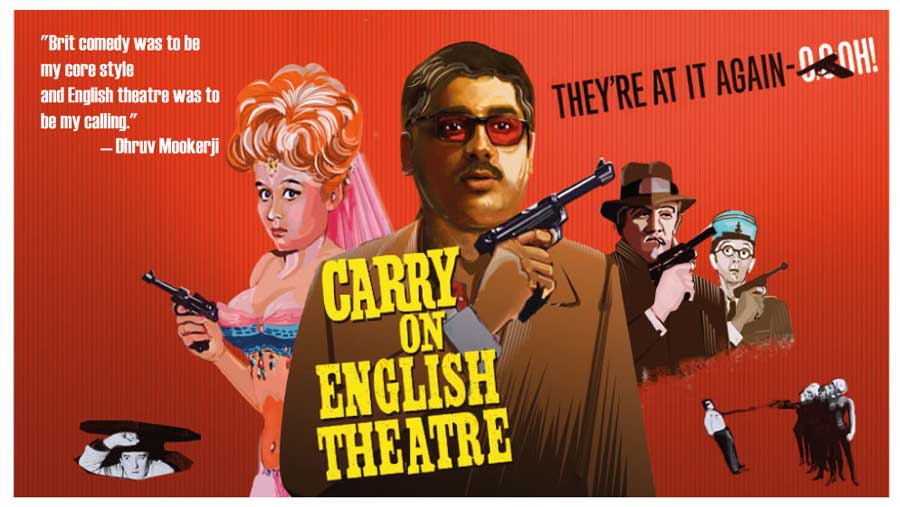The 39th Nandikar National Theatre Festival took place between December 20 and 25 at the Academy of Fine Arts, Kolkata. Initiated and organised by Nandikar Theatre Group, the festival returned in full scale in 2022 after enduring the bitter times of the Covid-19 pandemic. Theatre groups from across Kolkata, such as Samstab, Ichheymoto, Beadon Street Subham, Nadia Natya and Naye Natua were present, along with five productions from Nandikar. A street play by actors from Jharkhand was also performed this year along with a children’s ensemble directed by Debabarata Maity, Anindita Chakraborty, and Arghya Dey Sarkar.
“The theatre culture in and around Kolkata is alive and kicking. Although we are constrained by time to represent the entire theatre scene of India in our festival, we try to incorporate diversity in our festival as well as we can. In 2021, we couldn’t plan for a long-running festival due to the financial crunch post-Covid. But in 2022, we’ve bounced back,” said Sohini Sengupta, director of Nandikar.
“Theatre is magical. It also brings out the truth of the performer. Being popular is not being a performer. The practice of being an actor happens only in theatre. Here you are naked and vulnerable in front of an audience, ” said actor Saptarshi Maulik, in his remarks about theatre and its culture.
‘Trust might give us pain, but the agony of distrust cuts way deeper’
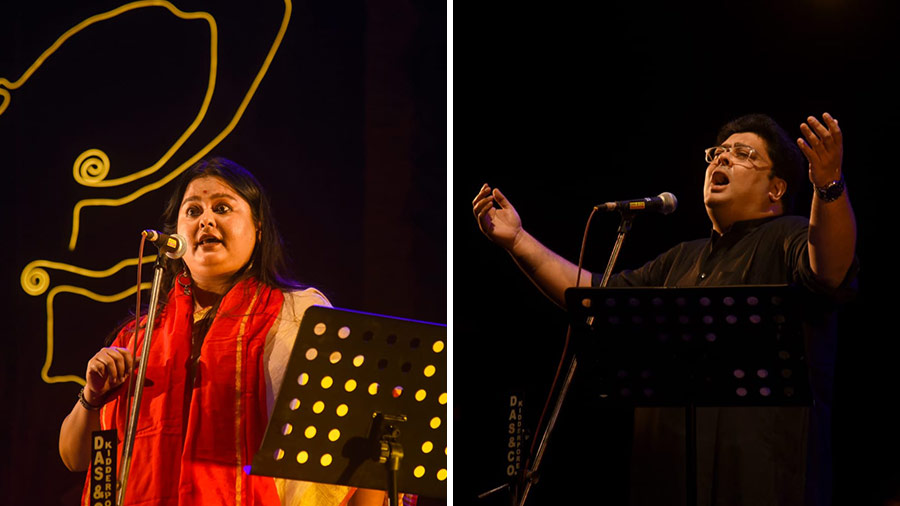
Sohini Sengupta and Ambarish Bhattacharya performing as part of ‘Natya Gaaner Parampara’
The festival was inaugurated on December 20 with a performance of Natya Gaaner Parampara, directed by Sohini Sengupta and Ambarish Bhattacharya. The duo, who played the role of siblings in the Bengali serial, Khorkuto, came up with the idea behind the opening performance by Nandikar. “Ambarish is a beautiful singer but we had no idea that he’s proficient in theatre songs as well,” said Maulik.
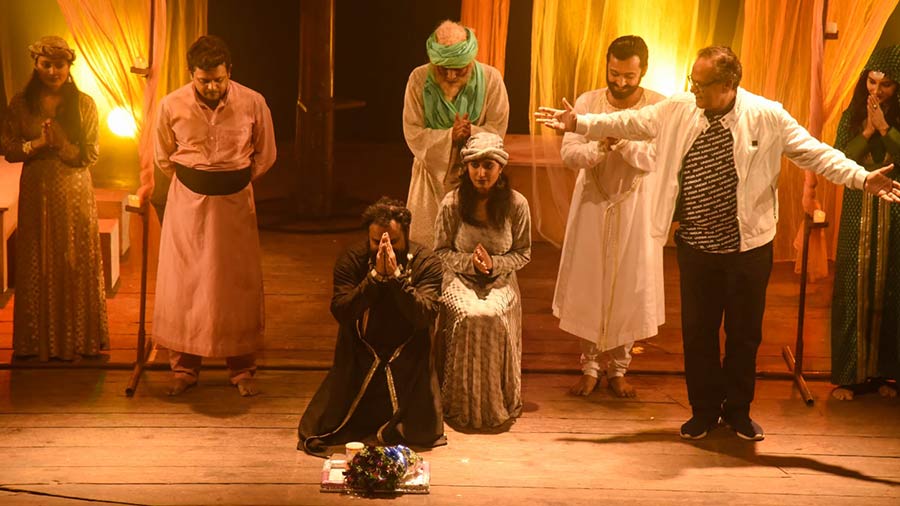
‘Uronto Tarader Chaya’ was performed by Samstab, a theatre group based in Bijoygarh
On December 21, a play directed by Debasis Roy called Uronto Tarader Chhaya was performed by Samstab, based in Bijoygarh. While chasing his Afghan enemies, Nader Shah, the king of Persia, enters the city of Kabul. During his journey, the Persian king comes across Muhammad Shah, the twelfth Mughal emperor in Delhi. Upon facing his defeat, Muhammad Shah, being an artist at heart, speaks about forgiveness, love, faith and sacrifice — all things that the soil of Hindustan had gifted him with. Nader Shah frequently dreams of an aged Muhammad Shah in his later life in Persia after plundering the Peacock Throne and nearly all of Delhi. All Nader Shah can think of, as he is slain by his own family members, are Muhammad Shah's serene eyes, which never wavered even in the face of defeat.
In the audience, Shubhabrata Ghosh Dastidar, who was enraptured by Uronto Tarader Chaya, said: “Although the plot dates back to the Mughal era, it can easily be placed in today’s social context. Nowadays, we’re prone to losing trust in people. The play counters this tendency. Trust might give us pain, but the agony of distrust cuts way deeper.”
‘Ghosts are the beings that fill up the gaps of loneliness’
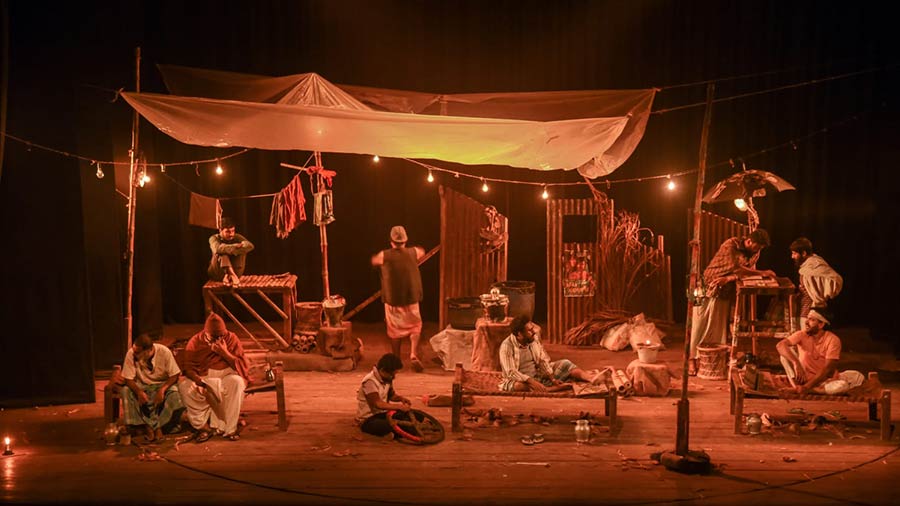
‘Ghum Nei’, by Iccheymoto, performed on December 22
Ghum Nei, an Utpal Dutt classic, directed by Saurav Palodhi, was performed by Iccheymoto on December 22. The play is a credo for the underclass of society, about people who are struggling under the rule of a tyrant. However, the drama pivots in guiding the story towards a horizon that is brimming with hope and togetherness.
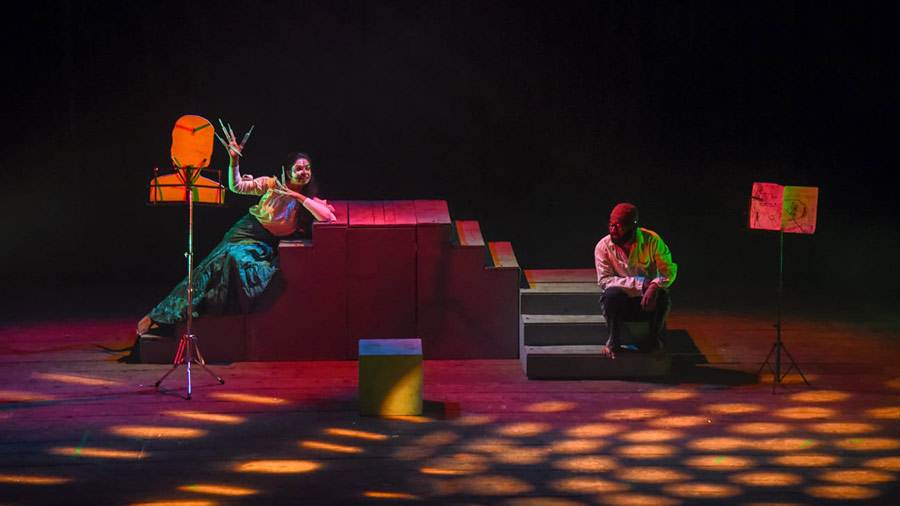
‘Shob Choritro Kalpanik’, by Beadon Street Subham, delves into God, ghosts and more
Shob Choritro Kalponik, a play marking the debut venture of Beadon Street Subham, was performed on December 23. Mahesh and Harinath, two soulmates, always engage in debates about ghosts, God and future. The heat of the debates reaches a point where divine intervention is required, but only the colleagues of the two are present to save the day. Watching the play was Rakesh Das, an ardent theatre lover, associated with Nandikar since 2015. He said: “It’s a fantasy for me. I don’t believe in ghosts. When you love someone, you yearn for their presence. That’s what ghosts are for me. They are the beings that fill up the gaps of loneliness. You would only fear ghosts when there is fear of something larger in your heart.
‘Theatre isn’t just a voice. It’s a protest’
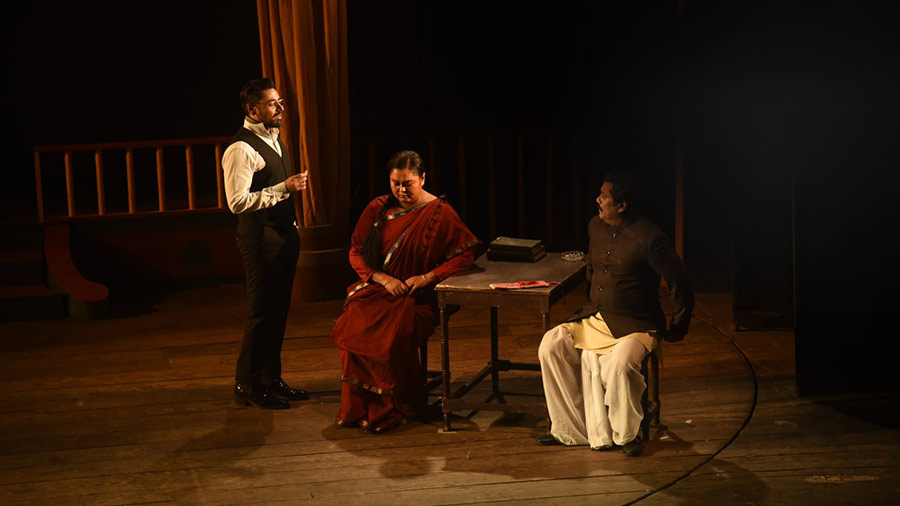
‘Rani Kadambini’ celebrates a pioneer battling against all odds
Rani Kadambini, directed by Sohini Sengupta, was also staged on December 23. Nobody in the British empire in India had heard of a female doctor before Kadambini Ganguly, the first female physician to study and practise Western medicine in India. In the play, Kadambini is the focus of all the unwanted attention at a college where everyone else is a man. Ultimately, though, she prevails, fulfilling her dreams of becoming a doctor against all odds.
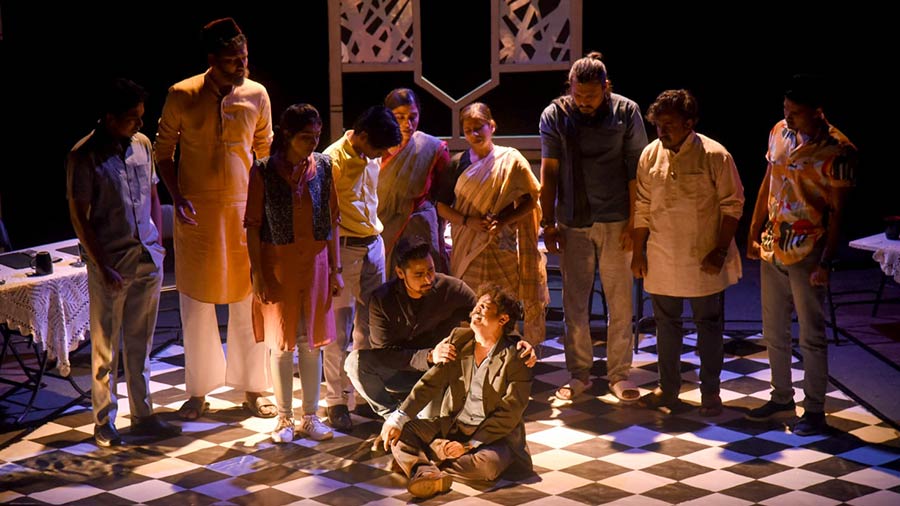
‘Ek Theke Baro’ is a reflection of how one individual can change the world by challenging the ideas of others
Ek Theke Baro, directed by Saptarshi Maulik, based on the 1957 movie 12 Angry Men and adapted from a teleplay of the same name by Reginald Rose, was performed on December 25. In this compelling drama, 12 jurors must determine whether a son accused of killing his father is guilty or not. In the broader context, the play is a reflection of how one brave individual can change the world by challenging the ideas of others. Something the festival, as a whole, tried to do in 2022.
“The fire of the theatre can never be extinguished. At Nandikar, we’ll keep upholding the sanctity of our theatre since this is all we know in life. In a world dominated by cinema, web series and OTT, theatre is the only art that comes to life on stage. This is what feels natural and spontaneous. Everything else is artificial. Theatre isn’t just a voice. It’s a protest, “ said Rakesh Das, a member of Nandikar.
